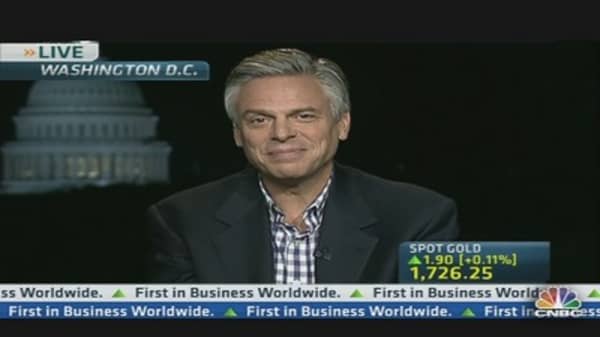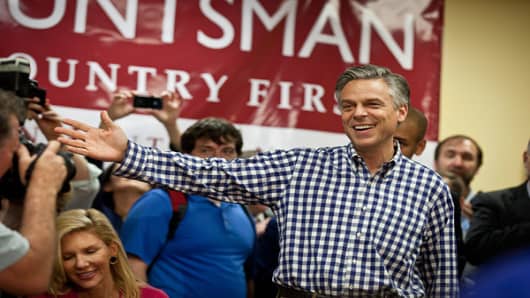The stepped-up government negotiations on cyberhacking that President Barack Obama will open with Chinese President Xi Jinping this week can have only "limited" impact on China's conduct, says his former ambassador to China, Jon Huntsman.
The hacking, which harms U.S. national security and costs businesses hundreds of billions of dollars, stems from both government and business activity in China, much of it at the local level, Huntsman said in an interview.
While the U.S. government and businesses both need to protect themselves more aggressively, he added, the most important progress will come over time as China moves up the innovation quality ladder and finds protection of intellectual property is in its own interests, too.
"You can create red lines, boundaries that are set," he said in the New York interview. "The longer-term play is going to be on engaging this entrepreneurial society that's coming in China. They're coming up very quickly. They want to have name-brand, respected entities, they want to go global, they want to come to the United States."
"If you carry that image and reputation as being a rip-off artist, that's going to hobble you in the marketplace. They're going to be ripped off, too."
Huntsman carries one of the most distinctive resumes in American politics. The fluent Mandarin speaker served as the Republican governor of Utah before Obama tapped him to become ambassador in Beijing in 2009.
(Read More: China's Strength Could Become Its Weakness)
Later, Huntsman resigned to challenge Obama's re-election as an unsuccessful candidate for the 2012 Republican presidential nomination. He's considering another presidential bid in 2016.
Huntsman called this week's informal summit in southern California a unique opportunity for Obama to shape his relationship with the "sophisticated, confident" President Xi.
"He's somebody who gets the whole economic side, understands investment and trade and what it takes to make a marketplace work," Huntsman said of the new Chinese leader. Among his goals:"Figure out a role for the Internet in society. You can't block it and expect China to become an innovative and prosperous country longer-term."





